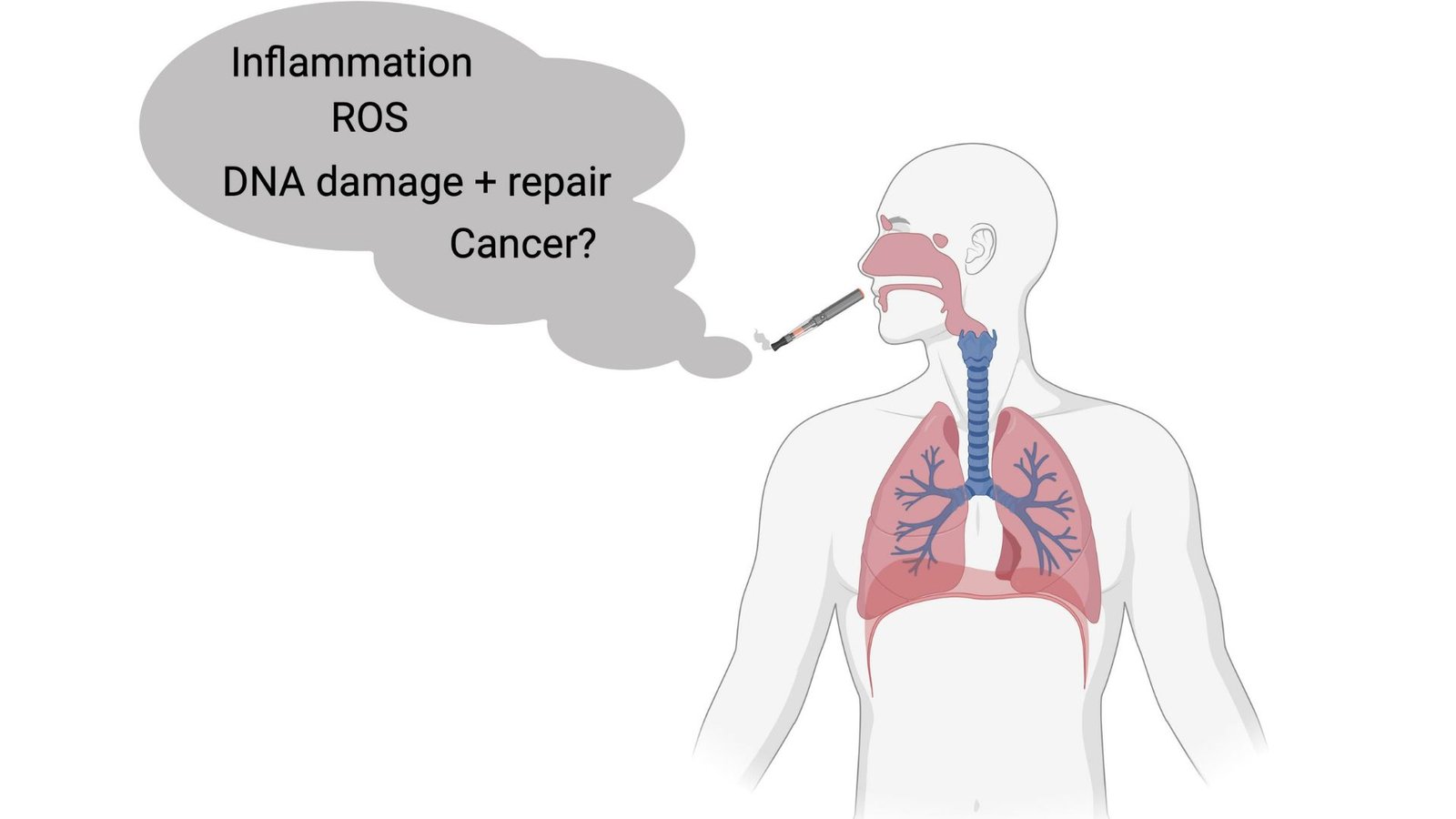It has been discovered that vapers’ cells show DNA alterations like to those reported in smoking’ cells. According to recent research published in the journal Cancer Research, these alterations in cell DNA, referred to as epigenetic modifications, were discovered in cells that were directly exposed to the smoking and vapor—like the mouth—as well as in those that were indirectly exposed, such the blood or the cervix.
Effect of vape smoking
This suggests that vaping may have unidentified harmful health effects, even while it doesn’t indicate that it carries the same level of cancer risk as smoking.
“This is the first study to look at how smoking and vaping affect other types of cells instead of simply blood, and we’ve also tried to think about how using e-cigarettes may affect your health in the long run.” stated in a statement study author Chiara Herzog, a researcher at the University of Innsbruck in Austria and the EGA Institute for Women’s Health at University College London.
“Our findings refute the notion that e-cigarettes smoking cause cancer, but they do demonstrate that the buccal cells of e-cigarette users have some epigenetic changes like those of smokers. That these changes are linked to the development of lung cancer in smokers in the future.” said she. “It will need further research to see if these characteristics can be utilized separately to predict cancer in smokers and e-cigarette users.”
The paper details the process of examining more than 3,500 bodily cell samples to determine how e-cigarettes and tobacco affect DNA methylation epigenetically.
Changes in gene expression known as epigenetic modifications occur while the underlying DNA sequence remains unchanged. These modifications may have an impact on the on/off states of genes, which may have an impact on cellular activity. One type of epigenetic alteration is DNA methylation, which is the addition of a methyl group to DNA molecules. This process frequently leads to gene silence, which is the inhibition of gene expression caused by blocking the transcription machinery from reaching the gene.

Numerous causes can cause epigenetic alterations, including aging, exposure to chemicals or hormones, stress, and environmental stimuli.
The authors of the paper explain how they discovered epigenomic alterations in e-cigarette smokers’ cells, which are also present in precancerous or cancerous lung cells.
Professor Andrew Beggs of the University of Birmingham in the United Kingdom, who specializes in cancer genetics and surgery and was not associated with the study, stated in a statement: to this intriguing study, using e-cigarettes is linked to harmful methylation alterations in human cells that are comparable to those caused by smoking. This study indicates that further research is necessary to fully understand the effects of e-cigarettes on human health and whether they are associated with an increased risk of cancer, even if it does not prove a clear causal relationship.”
The cheek cells of vapers who had smoked fewer than 100 cigarettes over their lifetimes also showed these modifications.
“Although most scientists agree that e-cigarettes are safer than traditional tobacco products, we cannot assume that they are risk-free, and it is crucial to investigate any potential long-term hazards and connections to cancer,” said Herzog, “Our research is intended to contribute to a larger conversation on the use of e-cigarettes, particularly among those who have never smoked tobacco.”
It has long been known that tobacco smoking causes cancer, taking the lives of approximately 8 million people (about half the population of New York) annually, 1.3 million of them are exposed to secondhand smoke even though they do not smoke.
Professor of cancer research at University College London Martin Wandschneider told Newsweek:
It was previously unknown how smoking affects various cell types, whether the effects would be comparable in all cases, or if they would impact distinct genes and biological pathways. Smoking was known to modify the epigenome. According to our research, smoking alters the epigenome in several cell types throughout the body in various ways.

Concerns have been raised by other specialists regarding the new study’s conclusions.
“Cancer Research is a very prestigious publication, however epidemiologically, the study does not support the authors’ results, and their smoking/vaping analysis has a significant flaw.” In a statement, Ohio State University emeritus professor of medical oncology Peter Shields, who was not involved in the study, said
He said that the study has flaws that the authors fail to mention, such as the fact that different sample sets were mixed without any consideration for confounding variables.
“They omit important details in order to support their allegations of negative impacts.”
said Shields. “They mostly rely on each person responding “yes” or “no,” or self-reporting years of usage, because they lack solid data on smoking and vaping. This is quite basic, and they are still a long way from being able to demonstrate causation without the dose-response evaluation (e.g., packs per day, vapes per day, respectively). There was no molecular evidence to support the vapers’ claim that they did not also smoke.”
“They don’t really go into too much depth, but the research indicates that vapers are not more likely to develop cancer than non-smokers are! There is no discussion of this.” Shields stated, “The writers really need to exercise more caution.”

